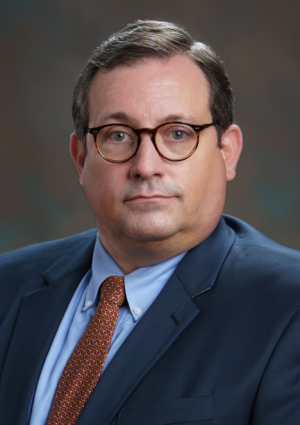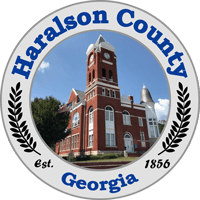Office of the Probate Judge
SPECIAL JURISDICTION COURT
The probate judge is an elected Constitutional County Officer with a four-year term of office. Probate judges are the successors to the position originally known as the "Ordinary."
Before the creation of the county commissioner system which today governs the affairs of a county, the Ordinary was the chief administrative officer of the county and ran the county's business. Many of the administrative duties and functions of the probate court derive from that fact.
Qualifications for this office vary. In all counties a candidate for probate judge must be at least 25 years old, a high school graduate, and a county resident for at least two years preceding the election. In larger counties, those with a population greater than 96,000, a candidate for probate judge must have practiced law for seven years and be at least 30 years old.
Probate courts, formerly called courts of ordinary, have original jurisdiction in the probation of wills, administration of estates, appointment of guardians, and involuntary hospitalization of mentally incapacitated adults. They administer oaths of office and issue marriage licenses. They also supervise the printing of election ballots and the counting of votes, and in some counties they have jurisdiction over traffic and compulsory school attendance laws.
Probate Judges may hold habeas corpus hearings or preside over criminal preliminary hearings. In counties with a population greater than 96,000, a party to a civil case may request a jury trial in the probate court. Probate judges may handle certain misdemeanor cases, traffic cases, and violations of state game and fish laws in counties where there is no state court.
About the Judge
Judge Hulsey is a graduate of West Georgia College and the Cumberland School of Law Samford University, and has been Probate Judge for 20 years. He also serves as adjunct professor of history and government and is president of the Constitutional Officers' Association of Georgia. He is also known locally for his talent as a pianist and organist.
CONTACT INFORMATION

Judge J. Edward Hulsey Jr.
Probate Judge
Probate Court
4485 GA-120
P.O. Box 620
Buchanan, GA 30113
Phone: 770-646-2008
Fax: 770-646-3419
GENERAL DUTIES AND RESPONSIBILITIES
The General Duties and Responsibilities of the Probate Judges Office as defined in the Official Code of Georgia and the Constitution of the State of Georgia are:
- to determine the validity of wills
- to enforce the provisions of valid wills
- to prevent malfeasance by executors and administrators of estates
- to provide for an equitable distribution of the assets of persons who die intestate (without a valid will)
- deal with conservatorships
- guardianships
- name changes
- adoptions
- administer oaths of office
- issue marriage licenses
- may hold habeas corpus hearings or preside over criminal preliminary hearings
- may also hear certain misdemeanors
- traffic cases
- violations of state game and fish laws
- issues firearm’s licenses
In addition to the above services, some Judges will also service in other capacities:
- Service as Magistrate Judge
- Service as Municipal Judge
- Serve as County Election Official
- Serve as a Passport Office
Jurisdiction
Probate courts have exclusive, original jurisdiction over certain categories of cases involving decedents' estates, adult guardianships and/or conservatorships, minor guardianships and/or conservatorships, and involuntary treatment of persons suffering mental illnesses or addiction to or abuse of drugs or alcohol. In addition, probate courts perform other judicial and administrative functions.
Decedent's Estates
The estates of persons who die domiciled in or owning property in the State of Georgia are primarily administered under the supervision of the probate courts. Probate courts hear and rule upon petitions to probate wills, petitions to appoint administrators, petitions for year's support, and petitions for orders declaring no administration to be necessary. When required by law or a will, probate courts rule upon the sale and disposition of the property belonging to, and the distribution of, the property of a decedent. Probate courts receive, audit and review the returns of all administrators and executors required by law to file reports with the court. The discharge or removal of executors and administrators and their sureties is within the jurisdiction of the probate courts.
Adult Guardianships / Conservatorships
Probate courts have jurisdiction over the appointment and supervision of
Minor Guardianships / Conservatorships
Probate courts have jurisdiction over the appointment and supervision of conservators of the property of minor children. Conservators of minors also must file an inventory of assets and annual financial accountings with the probate court. Probate courts may also appoint permanent guardians or temporary guardians of the persons of minor children in certain circumstances.
Involuntary Treatment
Probate courts may order the assessment and evaluation of persons 17 years of age and older who are believed to be mentally ill and/or addicted to or abusive of alcohol or drugs and who appear to be a risk of danger to themselves or others. The probate courts in counties in which there is located a state regional mental hospital or a designated private mental hospital may also order the involuntary treatment of such persons for limited periods of time.
Additional Functions
Probate courts perform other judicial and ministerial functions, including, but not limited to the issuance of marriage licenses; issuance of firearms permits; upkeep of all public records and minutes of proceedings in the probate court; acceptance and maintenance of funds, as custodian, for missing heirs and minors without guardians; issuance of residency certificates; issuance of licenses to conduct business by veterans maintenance; issuance of permits to perform public fireworks displays; filling vacancies in certain public offices; administering oaths to public officials; acceptance, and the approval and recording of bonds of certain public officials. Probate courts may hear cases involving the removal of obstructions from roads.
Forms and other information
Many, but not all, of the proceedings filed in probate courts, are initiated by the use of a Georgia Probate Court Standard Form. Those forms are available in the probate court office located at the Courthouse in Buchanan. Standard forms may also be accessed and downloaded from the Probate Court Information System at www.gaprobate.gov.
Often Used Forms
